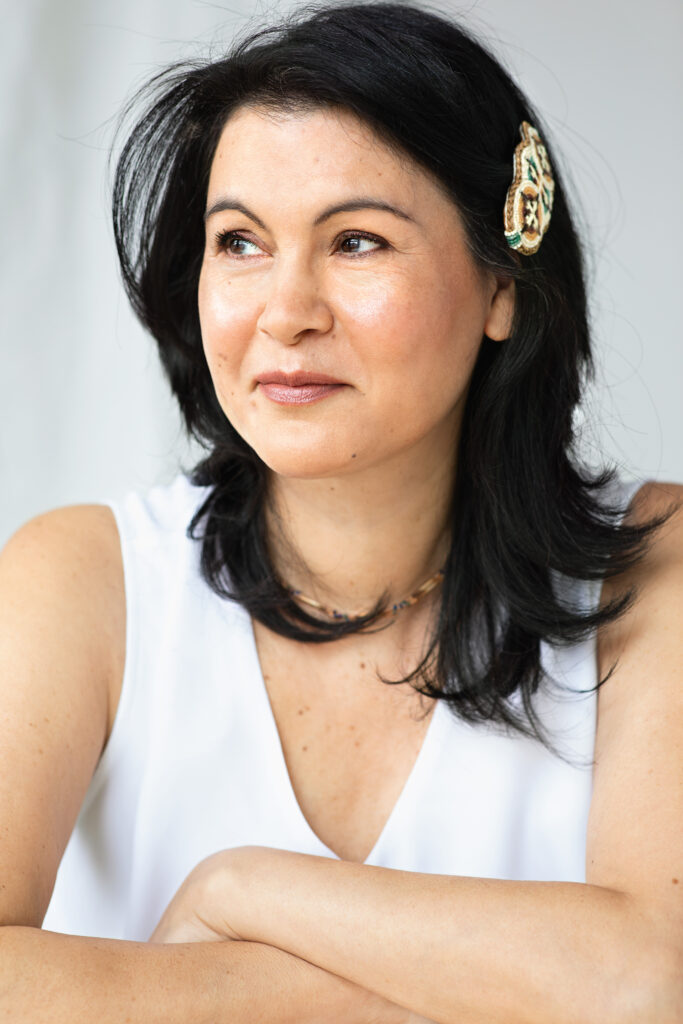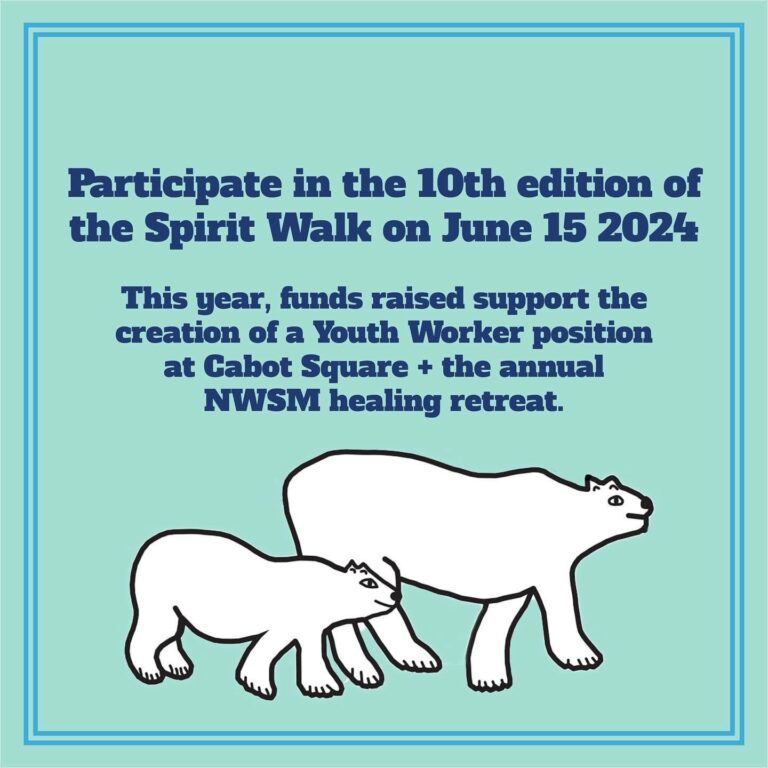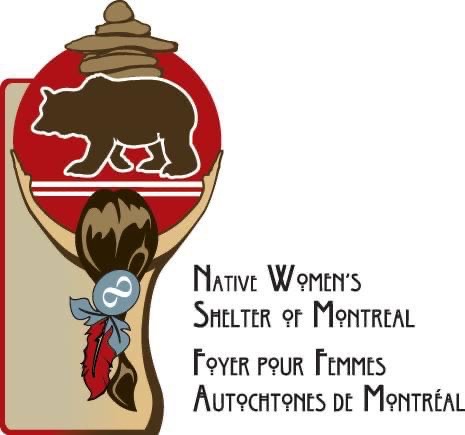Article written by Florencia Lazcano in collaboration with the Carrefour jeunesse-emploi Montréal Centre-Ville.
This piece was submitted to the Citizen Journal project of the Peter-McGill Community Council. Please note that the opinions expressed in these articles do not necessarily reflect those of our organization. This project aims to create space for the voices of residents, students and friends of the neighbourhood through articles, photos, videos, and podcasts in any language. Are you interested in contributing? Contact us at benevolat@petermcgill.org !
In a globalized and modern world like the one we are living in, it is alarming to witness the prevalence of racism, prejudice, and homelessness impacting native communities. It is shocking to see these issues growing in major cities like Montreal and, even more troublingly, in so-called first-world countries like Canada. Some individuals choose to remain ignorant of these matters, failing to look beyond their immediate concerns. Nonetheless, it is urgent that awareness is raised and that empathy and unity become normalized for the wellness of future generations.
In a recent conversation with Na’kuset, the Director of the Native Women’s Shelter of Montreal and a survivor of the ’60s Scoop, alongside her executive assistant Bonnie Hannah, we dove into the harsh realities faced by native women and children in Montreal. The conversation led to a deeper understanding of these individuals’ struggles as they navigate a society that often fails to provide the necessary support and empathy they deserve.
A bit of history
During the period known as the ’60s Scoop, which took place from the 1950s to the 1980s, a dark legacy emerged that continues to serve as a poignant reminder of the systemic injustices suffered by Indigenous communities. This era was characterized by the forced removal of Indigenous children from their families and communities, resulting in a profound disruption of their sense of identity and connection to their cultural heritage. The trauma inflicted by being separated from their roots and being denied access to their cultural history has had enduring and profound effects on the individuals who were impacted by these events.
Na’Kuset was taken from her home and adopted by a Jewish family. Her own story took her to advocate, and thanks to her strength, many Indigenous women are not being ignored. She gives a voice to the unheard and a helping hand to those who lack resources.
Today, women and children seeking support often turn to dedicated individuals like Na’kuset and organizations such as Resilience and the Native Women’s Shelter of Montreal since the Canadian government lacks attention and action towards issues that include First Nation peoples.
The Native Women’s Shelter of Montreal’s mission is to provide a safe environment where Indigenous women can rebuild their lives. The shelter aims to promote empowerment and independence within the community by offering support and frontline services exclusively to First Nations, Inuit, and Métis women and children. With a zero-tolerance policy for drugs and alcohol, the shelter provides a sanctuary for those seeking refuge and a healing space.

Here are some key ways in which the shelter offers assistance:
- Safe Shelter: The shelter provides a safe and secure environment for Indigenous women and children who may be facing homelessness, domestic violence, or other crises. Women and their children are offered up to a three-month stay in one of 13 private rooms, ensuring a comfortable and supportive living space during their time of need.
- Frontline Services: The shelter offers frontline services to First Nations, Inuit, and Métis women and children, addressing their immediate needs and concerns. This includes access to food, clothing, hygiene products, and other essentials to ensure their well-being.
- Empowerment and Independence: The shelter’s programs promote empowerment and independence among Indigenous women and children. By providing resources, support, and guidance, the shelter helps individuals regain control over their lives and make positive changes for their future.
- Mental Health Support: Recognizing the importance of mental health and well-being, the shelter offers mental health services to address trauma, stress, and other emotional challenges that Indigenous women and children may be facing. This includes counselling, therapy, and access to culturally sensitive healing practices.
- Work Orientation and Education: The shelter assists women in accessing work orientation and educational opportunities to enhance their skills, knowledge, and employment prospects. By equipping women with the tools they need to succeed, the shelter helps them build a foundation for a brighter future.
- Legal Assistance: One crucial aspect of the shelter’s services is providing free legal help to Indigenous women and children. This support enables individuals to navigate legal issues, resolve conflicts, and access justice without feeling isolated or overwhelmed.
More about other Indigenous initiatives
The shelter is crucial in empowering individuals to overcome challenges, rebuild their lives, and thrive within their community by offering a range of programs that address their physical, emotional, and practical needs.
One of the remarkable programs offered by the Native Women’s Shelter of Montreal is the Welcoming Fire Outreach Program, which provides follow-up services for Indigenous women at risk of homelessness. Through bi-weekly workshops and traditional healing practices, the program aims to support emotional stability and empowerment among its participants.
Additionally, the Iskweu Project, an initiative by the Native Women’s Shelter of Montreal, focuses on addressing the issue of missing and murdered Indigenous women and girls in Quebec. By advocating for a proper response from institutions and reducing barriers to accessing support, the project seeks to bring justice and closure to affected families.
Another vital initiative is the Cabot Square Program, which aims to create a safe space for Indigenous community members in downtown Montreal. Mediators work to provide counselling, promote health, and foster cohabitation among marginalized citizens, offering a lifeline to those in need.
Organizations like the Native Women’s Shelter of Montreal rely on volunteers and donations to continue their essential work. Events like the annual Spirit Walk fundraiser are crucial in raising funds and awareness for Indigenous women and children in need.
As the struggle persists, society must open its eyes to the realities faced by marginalized communities. By understanding and acknowledging these challenges, we can take constructive steps to offer support and create positive change. Citizens have a crucial role to play in supporting Indigenous women and children in their pursuit of dignity and empowerment. This community support can be achieved through education, empathy, and advocating for inclusivity. Together, we can aspire to a more fair and compassionate future for all individuals, regardless of their background or heritage.
There is much more to be said, and many people wish to be heard. Shockingly, more than half of the children in foster care currently are Indigenous. This kind of approach is not a solution to their issues. I’m sure that there are amazing people out there fostering, but it is also a reality that these kids lose contact with their heritage; the foster families get paid for their “work,” and once they are old enough, they find themself cast aside, not being part of anyplace, and unable to cope with the racism and everyday living.
The government should address the specific needs of these Indigenous children in foster care. They need culturally sensitive support that acknowledges and respects their heritage. They need access to resources that help them stay connected to their culture and community. Additionally, providing training and support for foster families to understand and respect the cultural background of these children is crucial. This can help the children maintain a sense of belonging and identity while navigating the foster care system.
It is important to recognize that every voice matters, and everyone has a role to play in creating a more equitable and inclusive society. If you are looking for ways to get involved, you can consider volunteering your time or donating to these organizations that support marginalized communities. Your contributions can make a significant difference in the lives of those in need.
Furthermore, if you find yourself in need of assistance, remember that help is just one phone call away. You are not alone, and there are resources available to offer support and guidance.
Overall, awareness is the first step towards creating meaningful change. By staying informed, actively participating in initiatives, and supporting those in need, we can work towards a society that values and uplifts every individual. Together, let’s continue to strive for a world where everyone is treated with dignity and respect and where opportunities are accessible to all.
A call to action!
The 10th Annual Spirit Walk, scheduled for June 15, 2024, will focus on empowering Indigenous youth and raising funds for a Youth Worker position at Cabot Square. Participants are invited to register, donate, and participate in the walk in person or virtually, supporting the NWSM’s efforts to provide essential services and healing retreats.


Helpful links and contact:
https://www.zeffy.com/en-CA/peer-to-peer/cc1d8f38-03b2-44a2-94bb-d1a772e2d972
Contact :
Phone: (514) 933-4688Toll Free: 1-866-403-4688Fax: (514) 933-5747Email: nakuset@gmail.com